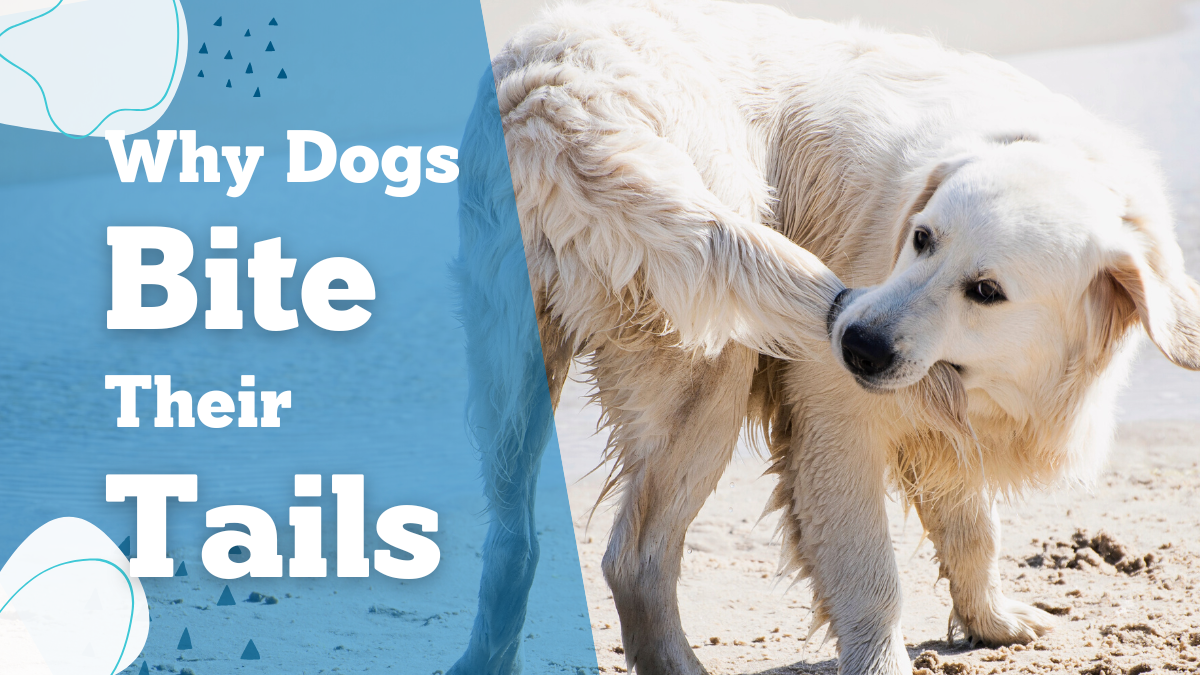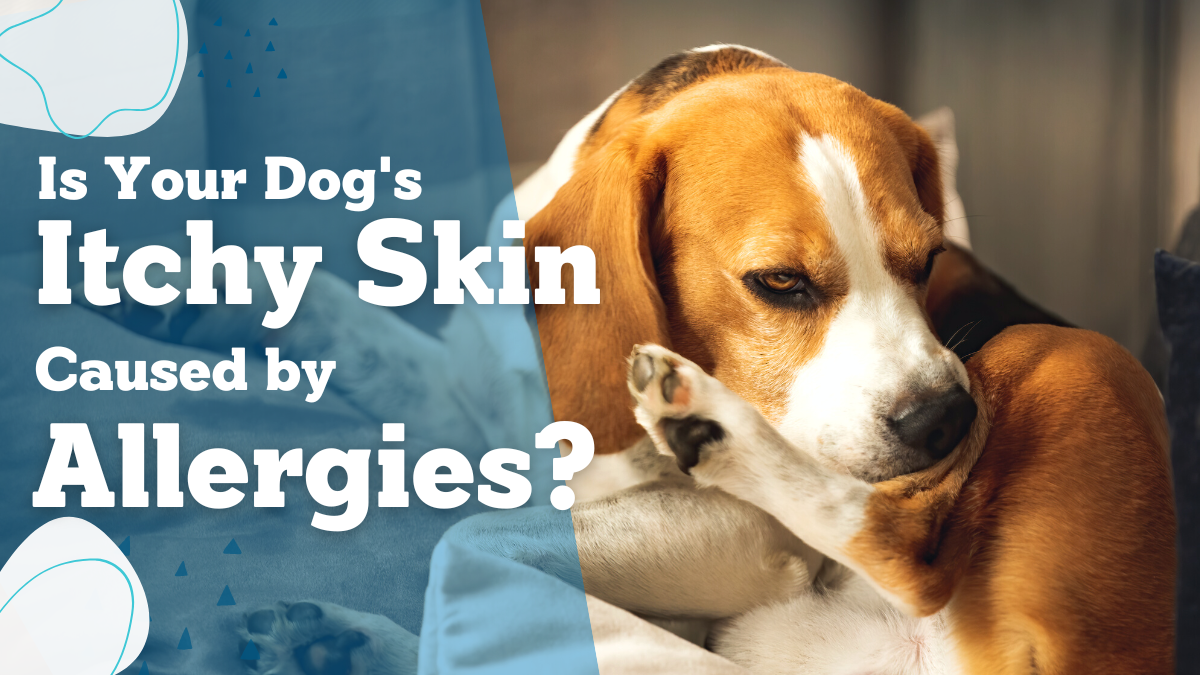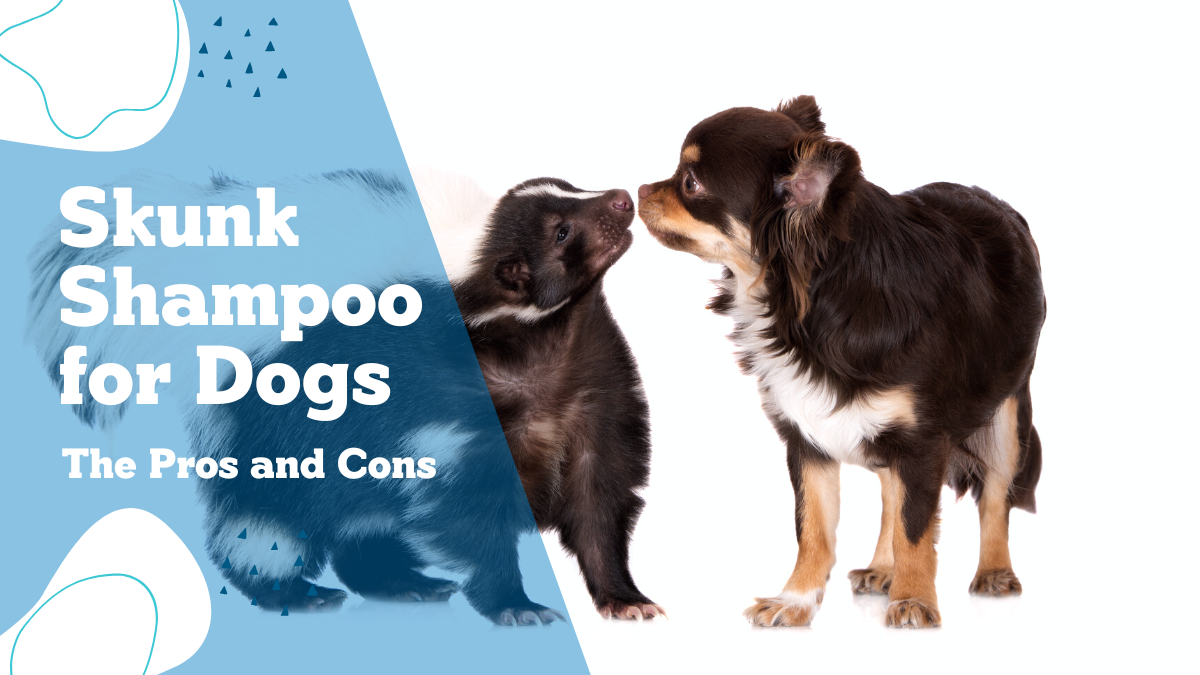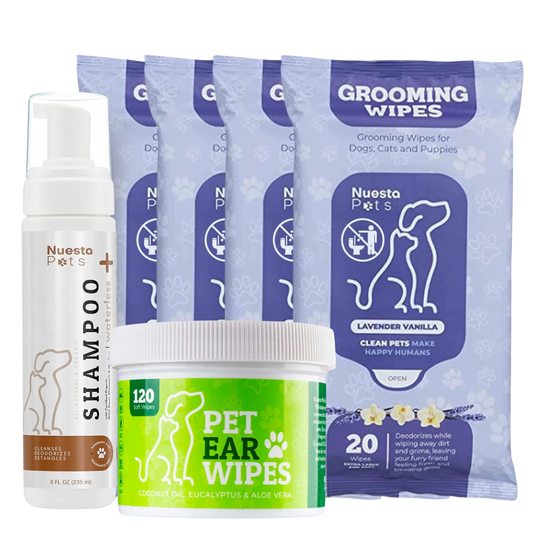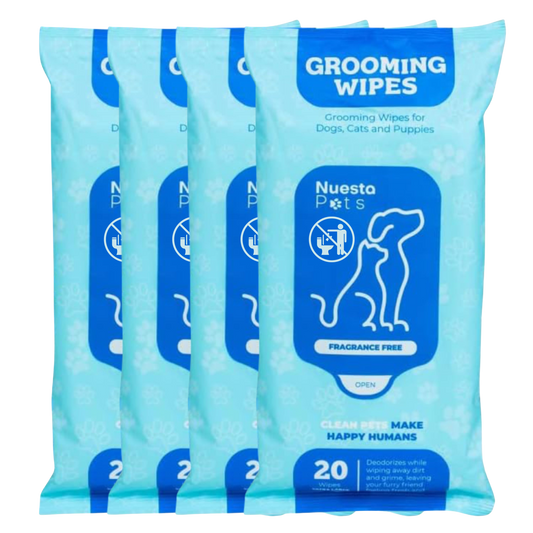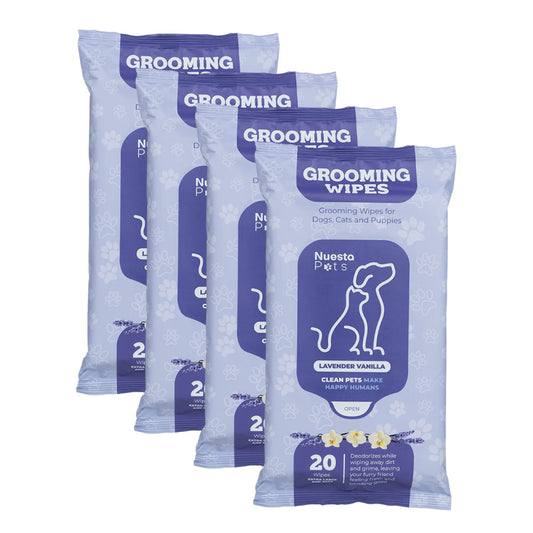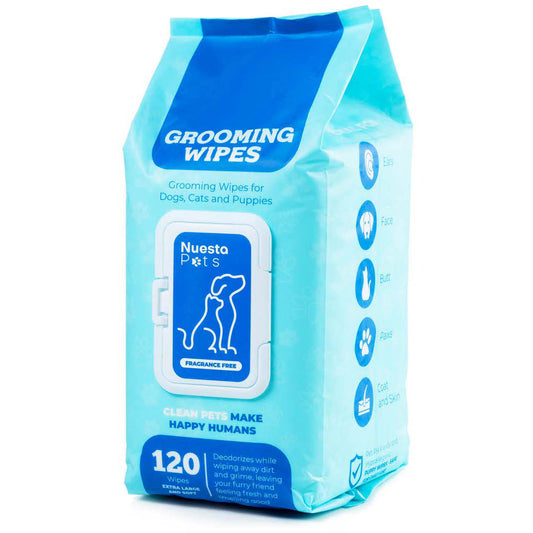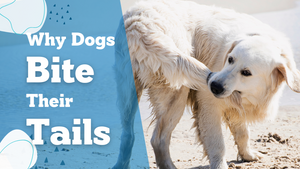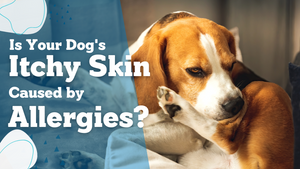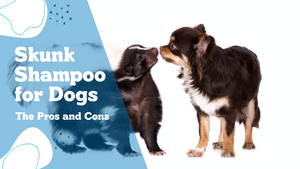A diet for your dog should be healthy and balanced.
It's important to know what they can and can't eat. Dogs love food, but that doesn't mean all foods are good for them.
In fact, some human foods dogs eat can be dangerous. Your pup will always give you puppy dog eyes when you're eating something tasty and sometimes it’s wise to resist!
Here are some thorough guidelines to help you make sure your dog's diet is healthy and safe.
Make sure to bookmark this page and share with fellow dog lovers!
Share:
Dogs need a balanced diet to stay healthy
Just like humans, dogs need the right proportions of protein, carbohydrates, and fat in their diets to be at their best. Feeding your dog junk food or only giving them one type of food will not make them happy or healthy.
Dogs need a variety of different foods to stay mentally and physically active and to live long and prosperous lives.
A diet that is too high in one type of food or too low in other types can lead to health problems. Dogs need a balanced diet to stay healthy. A diet that contains all the nutrients your dog needs in the right proportions is called a "balanced" diet.

What goes into a healthy dog diet
A healthy diet with nutritional value is important for all living creatures, including dogs.
Just as people need a variety of fruits, vegetables, and whole grains in their diets, dogs also need a variety of nutrients to stay healthy.
Some basic ingredients should be in every dog's diet
Proteins are an essential part of a healthy diet for dogs. They help build and repair muscle tissue, and they are also a source of energy. Dogs need both animal-based and plant-based proteins in their diets.
Good sources of animal-based protein for dogs include:
- meat
- poultry
- fish
- eggs
Good sources of plant-based protein for dogs include:
- legumes
- grains
- seeds
Dogs also need fats in their diets. Fats are a concentrated source of energy, and it helps to absorb some vitamins and keep the skin healthy.
Good sources of fat for dogs include:
- meat
- poultry
- fish
- eggs
- dairy products
- certain oils
Carbohydrates are another important part of a healthy diet for dogs. They provide energy and help to maintain a healthy digestive system.
Good sources of carbohydrates for dogs include:
- grains
- vegetables
- fruits
In addition to the major nutrients, dogs also need vitamins and minerals in their diets. Vitamins help to keep the immune system strong and the skin and coat healthy. Minerals are needed for proper growth, development, and metabolism.
Good sources of vitamins and minerals for dogs include:
- sweet potatoes
- eggs
- fish oil
- liver
- pumpkin
While all these nutrients are important for dogs, it is important to remember that they need them in different amounts.
The best way to ensure that your dog is getting all the nutrients they need is to feed them a balanced and complete diet.
This can be done by feeding them dog food that has been formulated to meet their specific nutritional needs, or by working with a veterinarian or animal nutritionist to create a custom diet plan.

How to make sure your dog's diet is balanced
Dogs need a balanced diet, but it can be tricky to make sure they're getting all the nutrients they need. Here are a few tips to help you make sure it's as healthy as possible.
- Talk to your vet about what kind of food is best for your dog. Just like with people, different types of diets can be better for different dogs based on their age, activity level, and health needs.
- Make sure you're feeding your dog enough food. Dogs need a certain number of calories per day depending on their size. If they're not getting enough, they can start to lose weight.
- Don't forget about water! Dogs need to stay hydrated just like we do, so make sure they always have fresh water available and that you're giving them enough to drink throughout the day.
- Be careful with treats. While it's okay to give your dog the occasional treat/healthy treat, you don't want to overdo it because they can quickly start to gain weight.
- Avoid human food. While we may think it's okay to share our food with our furry friends, a lot of human foods (like chocolate) can be toxic to dogs.
- Keep an eye on your dog's waste. If their stool is runny or they're having a lot of accidents, it could be a sign they have an upset stomach. Which could mean something is wrong with their diet.

What foods to avoid feeding your dog
Dogs are like children in that they will eat anything and everything. While this may be amusing to watch, it can also be dangerous since some foods that are safe for humans can be deadly to dogs.
Pet owners should be aware of the many human foods that are unsafe for their pups. Giving a dog raw chicken, beef, or fish is a big no-no.
Especially salmon. Dogs can get salmon poisoning disease if given raw salmon and signs of this disease usually show in 10 days. These signs may include fever, followed by hypothermia, and depression. Be sure to see the vet immediately if you think your dog has ingested raw salmon.
Like humans, dogs can have food allergies like lactose intolerance. In very small and occasional doses your pup can have milk or cheese, but many dogs have trouble digesting dairy products.
Xylitol is extremely harmful to dogs. Xylitol is a natural occurring substance that is commonly used as a sugar substitute. It is a sugar alcohol that occurs naturally in berries, plums, oats, mushrooms, lettuce, trees, and other fruits. Corn fiber or birch trees are used to extract most of the xylitol commercially. Even low doses of xylitol can lead to hypoglycemia (low blood sugar), seizures, liver failure, or death in dogs.
It is okay to give your dog potatoes but only if they are cooked. Giving your dog raw potatoes can be toxic due to the solanine but the levels of solanine are reduced to a safe level when cooked!
Other foods to avoid feeding your dog include:
- Grapes and raisins: These fruits can cause kidney failure in dogs.
- Onion and garlic (including onion powder): These vegetables can cause anemia in dogs.
- Macadamia nuts: These nuts can cause muscle weakness, paralysis, and even death in dogs.
- Caffeine: Caffeine can cause restlessness, panting, and an increased heart rate in dogs.
- Chocolate: a big no-no for dogs, especially dark chocolate. Even small amounts of chocolate will give your dog an upset stomach or worse.
- Alcohol: Your pup can get alcohol poisoning which can cause vomiting, diarrhea, and even death in dogs.
If you think your dog has ingested any of these foods, it is important to contact your veterinarian immediately. While some dogs will only experience mild symptoms after eating these foods, others can become very ill very quickly. Better to be safe than sorry!

Dogs and chocolate - what you need to know
Dogs and chocolate seem like a perfect match because they are both so sweet, but the two don't mix well.
Chocolate contains theobromine, a compound that is toxic to dogs. If your dog eats chocolate, it can cause vomiting, diarrhea, panting, excessive thirst, increased heart rate, and seizures. In severe cases, chocolate ingestion can be fatal.
What types of chocolate are the most harmful
Most people are aware that chocolate is not good for dogs, but they may not be aware of which types of chocolate are the most harmful. Theobromine and caffeine are the two main ingredients in chocolate that can be toxic to dogs.
White chocolate has the lowest levels of both compounds, while dark chocolate and baking chocolate has the highest and is the most dangerous. Any type of chocolate can make your dog sick, so it's best to keep all chocolate out of reach.
Sugar is another ingredient that is often found in chocolate that can be harmful to dogs. When consumed in large quantities, it can cause your dog to gain weight and potentially lead to diabetes. Also, just like humans too much sugar can also be bad for your dog's teeth and gums.
Symptoms of chocolate poisoning in dogs
If you think that your dog has eaten chocolate, it is important to be aware of the symptoms of chocolate poisoning.
Chocolate poisoning can cause vomiting, diarrhea, an increased heart rate, and seizures.
If you think that your dog has eaten chocolate, it is important to call your veterinarian or animal poison control center immediately.
Raw bones vs cooked bones
Raw bones like chicken, turkey, lamb, or even oxtail can be a natural source of calcium and phosphorus and safe for your dog.
On the other hand, when cooked the bones are drained of their nutrients offering no benefit to your dog. Also, cooked bones can splinter and become a choking hazard for your dog, or cause serious damage to the dog's mouth, throat, or intestines.

What human foods are safe for your dog
It is important to be aware of the foods that are safe for your dog to eat.
Certain fruits and vegetables are safe for dogs to eat, including apples, bananas, carrots, green beans, and watermelon.
It is also safe to give your dog small amounts of cooked meat, such as chicken, beef, or turkey.
Other foods that are safe for your pet include:
- Pumpkin
- Cooked white rice
- Cucumber
- Cooked eggs
- Oatmeal
- Blueberries
- Pineapple
- Blackberries
If you are unsure about whether a particular food is safe for your dog to eat, it is always best to consult with your veterinarian. They will be able to give you the most accurate and up-to-date information.
Avoid feeding your dog table scraps or human food
It's important to be aware of the fact that human food isn't always good for dogs. In fact, it can be dangerous for them to eat table scraps or other human food.
This is because different types of food contain different nutrients, and dogs' bodies aren't equipped to handle all the nutrients found in human food.
Dogs can generally eat most types of fruits and vegetables, but there are a few exceptions. For example, grapes and raisins can be toxic to dogs, and so can avocados.
Be sure to do your research before feeding your dog any new type of food.

Don't give your dog too many treats - only give them as a reward for good behavior
One thing to keep in mind when it comes to your dog's diet is that you should only give them treats as a reward for good behavior.
Giving your dog too many treats can lead to weight gain and can be bad for their health.
Be sure to stick to a strict treat regimen, and only give your dog treats when he's a good boy.
Keep an eye on your dog's weight and adjust their food intake accordingly
It's important to keep an eye on your dog's weight and adjust their food intake accordingly. Dogs that are overweight are at a higher risk for health problems, such as heart disease, arthritis, and diabetes. Conversely, dogs that are too thin may not be getting the nutrients they need to stay healthy.
If your dog starts to gain or lose weight, you'll need to adjust their food intake. This can be a bit of a challenge, but with careful monitoring, you should be able to keep your dog's weight within a healthy range.
If you are unsure about how much to feed your dog, consult with your veterinarian. They can help you create a feeding schedule and recommend the right type of food for your dog's individual needs.

How to adjust your dog's diet as they age
As your dog ages, it's important to adjust their diet accordingly. Here are a few tips on how to do that:
- Make sure they're getting enough protein. Senior dogs often lose muscle mass, so it's important to make sure they're eating enough protein to prevent that from happening. A good rule of thumb is to make sure they're getting at least 20% of their calories from protein.
- Adjust the fat content. Just like with people, as dog's age, they often need less fat in their diet. So, you may need to switch to a senior formula dog food that has less fat.
- Keep an eye on their weight. As dogs age, they often become less active, so it's important to make sure they don't start packing on the pounds. You may need to feed them smaller meals more often or switch to lower-calorie dog food.
- Make sure they're getting enough fiber. Fiber is important for keeping your dog's digestive system healthy. Senior formulas of dog food often have more fiber than regular formulas.
- Add some supplements. As your dog ages, it may need additional vitamins and minerals in its diet. Adding a supplement to their food can help make sure they're getting everything they need. Nuesta Pet's Fish Oil Food Additive (Coming Soon!) is a great supplement for a healthier coat and diet!
Follow these tips and you'll be sure to keep your senior dog healthy and happy!

The benefits of feeding your dog a healthy diet
Dogs are our best friends. They are always there for us, Loyal and true, no matter what. We should return the favor by providing them with the best possible diet we can.
There are many benefits to feeding your dog a healthy diet.
A good diet will keep your dog healthy, happy, and may even extend their lifespan. A healthy diet will also help to keep your dog at a healthy weight.
Being overweight can lead to health problems such as joint problems, diabetes, and respiratory issues.
A healthy diet will also help to keep your dog’s coat and skin healthy. Healthy skin and a shiny coat are signs of a healthy dog.
A healthy diet will also help to keep your dog’s energy levels up. A healthy dog is a happy dog, and a happy dog is a good companion.
A healthy diet will also help to prevent some common health problems such as obesity, dental problems, and gastrointestinal issues.
If you are not sure what the best diet for your dog is, talk to your veterinarian. They can help you to choose a food that is right for your dog’s individual needs.

Make sure your dog is getting enough protein
Making sure your dog is getting enough protein is important for their overall health. Protein provides the building blocks for muscles, organs, and skin, and helps dogs maintain a healthy weight.
There are several different ways to make sure your dog is getting enough protein. You can feed them high-quality dog food that contains plenty of protein, or you can supplement their diet with protein-rich foods like meat, fish, eggs, and dairy.
You should also make sure they're getting enough exercise, as this helps to build muscle mass and maintain a healthy weight.
What types of meat are best for your dog
There are a variety of meats that can be fed to dogs. The best meats for dogs include beef, lamb, chicken, turkey, and pork. These meats provide the nutrients that dogs need to stay healthy and balanced.
While all meat is a good source of nutrients for dogs, there are some types that are better than others.
Lean meats like chicken and turkey are great for dogs because they're low in fat and high in protein.
Cooked salmon is also a great choice because it's a good source of omega-3 fatty acids, which have many benefits for dogs, including reducing inflammation and promoting a healthy coat.
Of course, you could always use Nuesta Pet's Fish Oil Food Additive (coming soon!) as a great source of omega-3 fatty acids

How much meat should your dog eat each day
The amount of meat that you should feed your dog depends on their age, weight, and activity level. Puppies and young dogs need more protein than adult dogs.
Adult dogs need about 18% protein in their diet, while puppies need 22-24%. A general rule of thumb is to feed them 2-3% of their body weight per day.
So, if your dog weighs 30 pounds, you would feed them about 1 pound of meat per day. If they are very active, you may need to increase their protein intake.
The best way to ensure that your dog is getting the right amount of meat in their diet is to consult with your veterinarian. They can help you determine how much meat you should be feeding your dog based on their individual needs.
What are grains and starches, and why are they important in a dog's diet
Grains and starches are an important part of a dog's diet because they provide the carbohydrates that the dog needs for energy.
Dogs also need fiber to help keep their digestive system healthy, and grains and starches are good sources of fiber.
Some grains and starches, like rice and oatmeal, are also high in protein, which is carbohydrates in grains, and starches are broken down into glucose, which is used by the cells for energy.
The fiber in grains and starches helps to keep the digestive system healthy by promoting regularity and preventing constipation.

Provide a variety of fruits and vegetables in their diet
Dogs may have an undeniable carnivorous bias but they require a variety of different types of foods in their diet to remain healthy. This includes both meat and vegetables.
While most people are aware that dogs need meat, many do not realize that vegetables are also an important part of a dog's diet. They provide essential vitamins and minerals, as well as fiber, which helps with digestion.
Vegetables also contain antioxidants, which can help protect your dog from disease.
There are a wide variety of fruits and vegetables that are suitable for dogs, so you should have no trouble finding ones that your dog enjoys.
Some of the most popular options include carrots, green beans, apples, and bananas. However, there are many other options available as well.
If you are unsure of what fruits and vegetables are safe for dogs, you can always consult with your veterinarian.
In general, it is best to feed your dog a mixture of different types of fruits and vegetables. This will help ensure that they get all of the nutrients they need.
Avoid giving them processed foods
Processed foods are filled with chemicals, additives, and other unhealthy ingredients which can be harmful to dogs.
Many of these ingredients are not listed on the label, so it's hard to know exactly what is in them. Dogs that eat processed foods are more likely to get sick and have shorter lifespans.
The best way to keep your dog healthy is to feed them a nutritious, balanced diet that includes plenty of fresh foods. This will help them live a long and happy life.

What you need to know when making your own dog food
Making your own dog food is a great way to ensure that your pet is getting the nutrients they need in a healthy and balanced diet.
However, there are some things you need to know in order to do it correctly. Keep in mind the proper ratio of nutrients that your pet needs.
Dogs need a balance of proteins, fats, carbohydrates, vitamins, and minerals in their diet in order to stay healthy. The final thing to remember when making your own dog food is that it is important to cook the food correctly.
Certain vitamins and minerals are lost during the cooking process, so it is important to add them back in with supplements. Did we mention Nuesta Pet's Fish Oil Food Additive (Coming Soon)
Be sure to do your research and consult with your vet.
The benefits of feeding your dog a homemade diet
Dogs are carnivores and meat is a big part of their natural ancestral diet. But most people don’t have the time or inclination to feed their dogs a homemade diet, so they buy commercial pet food instead.
Unfortunately, most of those foods are not very healthy for dogs. Many are high in grain, which can cause allergies and digestive problems.
There are many benefits to feeding your dog a homemade diet. First, you will know exactly what goes into their food and can be sure that it is healthy and balanced. Second, it can save you money in the long run. And third, it can be very satisfying to make your fur babies meals!

What ingredients you can and can't use in homemade dog food
There are a lot of things to consider when it comes to making your dog's food at home. While it's certainly healthier and more affordable to make dog food yourself, there are some ingredients you should avoid using.
What you should avoid using in homemade dog food:
- Fatty meats like pork, lamb, and fatty cuts of beef.
- Processed grains like pasta.
- Dairy products, avocados, grapes and raisins, nuts and seeds, chocolate, onions, and garlic.
What you can use in homemade dog food:
- Lean meats such as chicken, turkey, fish, and lean cuts of beef.
- Whole grains like cooked white rice and oats.
- Vegetables like carrots, sweet potatoes, broccoli, and spinach.
- Fruits like apples, bananas, blueberries.
- eggs, yogurt, and pumpkin

Rotating your dog’s food
Dogs are like people in that they need a variety of nutrients to stay healthy. Just as you might rotate your food to make sure you're getting all the vitamins and minerals you need; you should also rotate your dog's food.
This will ensure that they're getting all the nutrients they need, including proteins, carbohydrates, and essential fatty acids.
There are a few different ways to rotate your dog's food. If you’re going to change up the brands you're feeding them, make sure you do it gradually so that your dog's stomach can adjust. You can also give variety in the type of food you're feeding them by rotating between dry kibble, canned food, wet food, and homemade food.
Always consult with your veterinarian before making any major changes to your dog's diet.
We hope this article has been helpful in providing all of the tips you need to feed your furry friend a nutritious and balanced diet to ensure their overall well-being.
Make sure to bookmark this page and share with fellow dog lovers!
Share:
Remember, don't give in to those puppy eyes!
But if you do... at least you're now well informed on what your sweet pup can and can't have!

